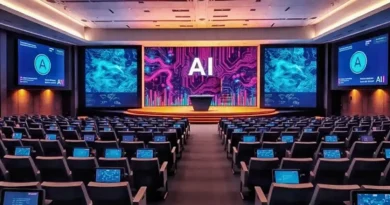Forging the Future of AI The Power of Academic Collaborations
Forging the Future of AI: The Power of Academic Collaborations
Forging the Future of AI: The Power of Academic Collaborations
In the rapidly evolving landscape of AI, academic collaborations are vital catalysts for groundbreaking research and innovation. By bringing together diverse minds, expertise, and resources, these partnerships fuel the advancement of AI across various domains. This article explores the multifaceted benefits and key considerations for successful academic collaborations in AI.
Synergistic Expertise and Resource Sharing
Academic collaborations foster a cross-pollination of ideas and expertise. Researchers from different disciplines, such as computer science, mathematics, neuroscience, and cognitive science, can leverage their unique perspectives to tackle complex AI challenges. These partnerships also facilitate the sharing of resources, including datasets, computational infrastructure, and research facilities, enabling more ambitious and impactful projects.
Accelerated Knowledge Dissemination
Collaboration accelerates the dissemination of knowledge and promotes open science principles. Joint publications, conference presentations, and workshops provide platforms for researchers to share their findings, receive feedback, and engage in constructive dialogue with the broader AI community. This open exchange of knowledge fosters a collaborative ecosystem that drives innovation and accelerates progress.
Cultivating the Next Generation of AI Leaders
Academic collaborations play a crucial role in training and mentoring the next generation of AI researchers and practitioners. By working alongside experienced faculty and researchers, students gain valuable hands-on experience, develop critical thinking skills, and contribute to cutting-edge research. These collaborations nurture a pipeline of talent that will shape the future of AI.
Key Considerations for Successful Collaborations
- Clearly Defined Goals and Objectives: Establish a shared vision and specific objectives for the collaboration.
- Open Communication and Trust: Foster a culture of open communication, transparency, and mutual respect among collaborators.
- Intellectual Property Agreements: Establish clear agreements regarding intellectual property ownership and licensing.
- Funding and Resource Allocation: Secure adequate funding and allocate resources effectively to support the collaboration.
Conclusion
Academic collaborations are indispensable for driving progress in AI research and development. By fostering synergistic partnerships, accelerating knowledge dissemination, and cultivating future AI leaders, these collaborations pave the way for transformative advancements in this dynamic field.




